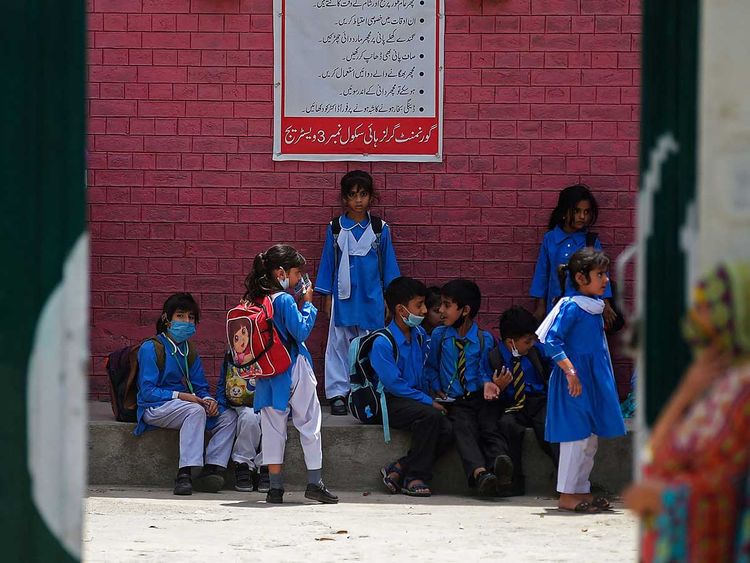Students wait under a shade for transport at a school on a hot summer day in this file photo from Rawalpindi.
Islamabad: Pakistan Met Office has issued a warning about a sudden rise in temperatures as well as “heatwave conditions” during this week.
“The day temperatures are likely to remain unusually high in most parts of the country during the week due to a persistent high pressure in the upper atmosphere,” Pakistan Meteorological Department (PMD) said in its latest advisory.
The early summer heatwave may also have a dramatic impact on crops. “Dry period and heatwave conditions in the country may cause water stress to the standing crops, vegetable and orchards” Met Office cautioned, advising farmers to manage crop water accordingly. It may also lead to early harvesting of wheat may start in Sindh and South Punjab.
Temperatures to rise 10 degrees above normal
The forecast predicts that the day climate could surge nearly 8 to 10 degrees above normal. “Day temperatures in northern Balochistan, upper Sindh, South Punjab, Kashmir and adjoining areas will remain about 9 to 10 degrees Celsius above normal.” Day temperatures would remain 7 to 8 degrees Celsius above normal in Islamabad, upper and central Punjab, Khyber Pakhtunkhwa, Gilgit-Baltistan, Lower Sindh and South Balochistan, PMD said.
A cooler February in Islamabad has been followed by an unusually warm March, making many feel like they have jumped straight into summer, entirely skipping the spring season. Met Office experts also warned that the “unusual high temperatures may cause pollen concentration to rise sharply in Islamabad and Lahore.”
Glacier melt risk in KP
The Provincial Disaster Management Authority has issued a warning that a spike in temperatures in Khyber Pakhtunkhwa province by seven to eight degrees could cause a heatwave during the next five days. The intense heat and heatwave conditions could also trigger glacial lake outburst floods (GLOFs) in snow-bound vulnerable areas of the province, especially Upper and Lower Chitral districts, experts warned. All relevant organizations have been put on alert to prevent damage to public life in case of GLOFs and flash floods in the province.”
Glacial melt has resulted in the formation of over 3,044 lakes in Gilgit-Baltistan and Khyber Pakhtunkhwa, putting the lives of some 7.1 million people at risk. Pakistan’s Ministry of Climate Change is working with UNDP to install scaled-up early warning systems and automated weather stations to mitigate the impact of GLOFs.

